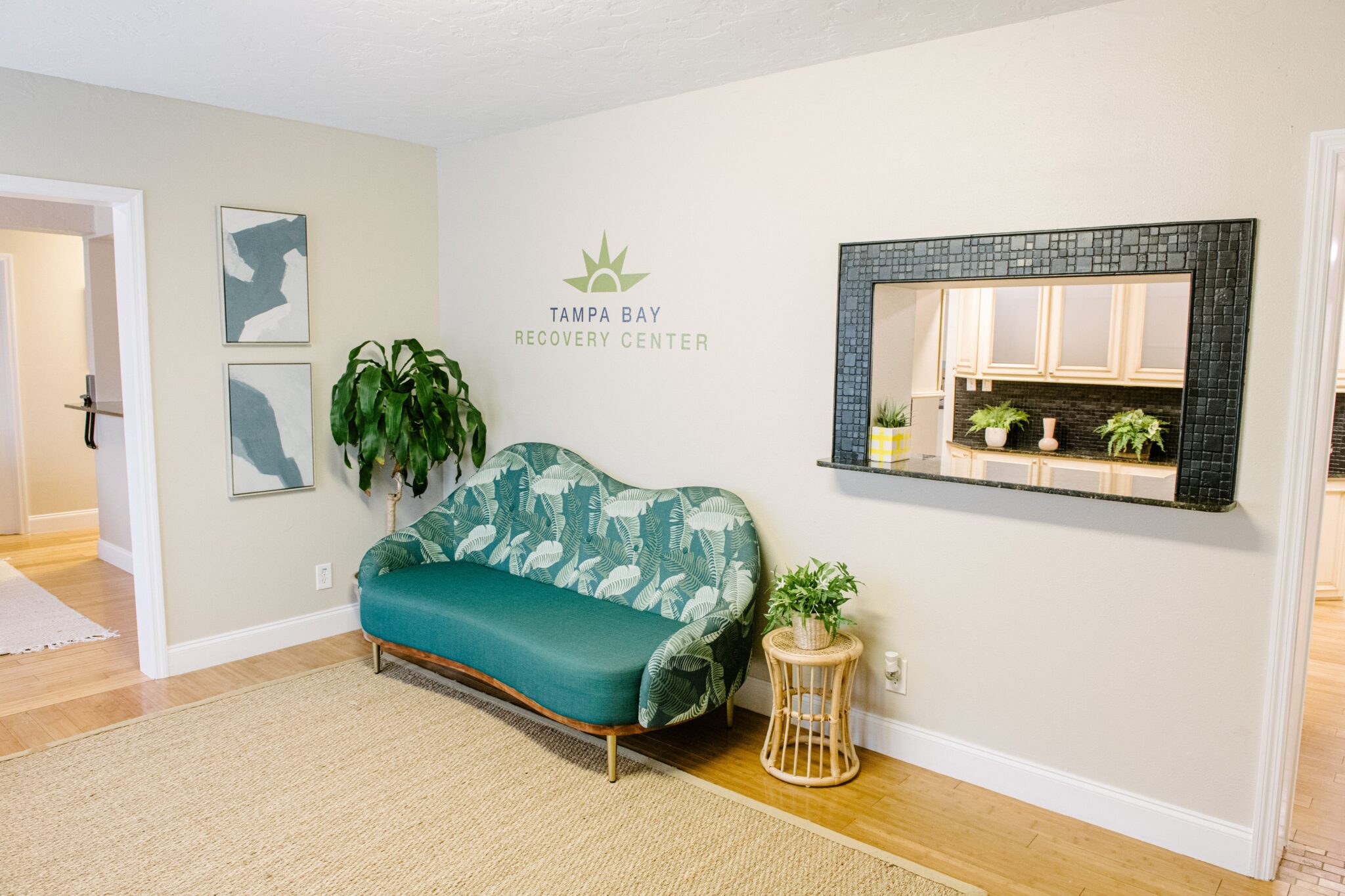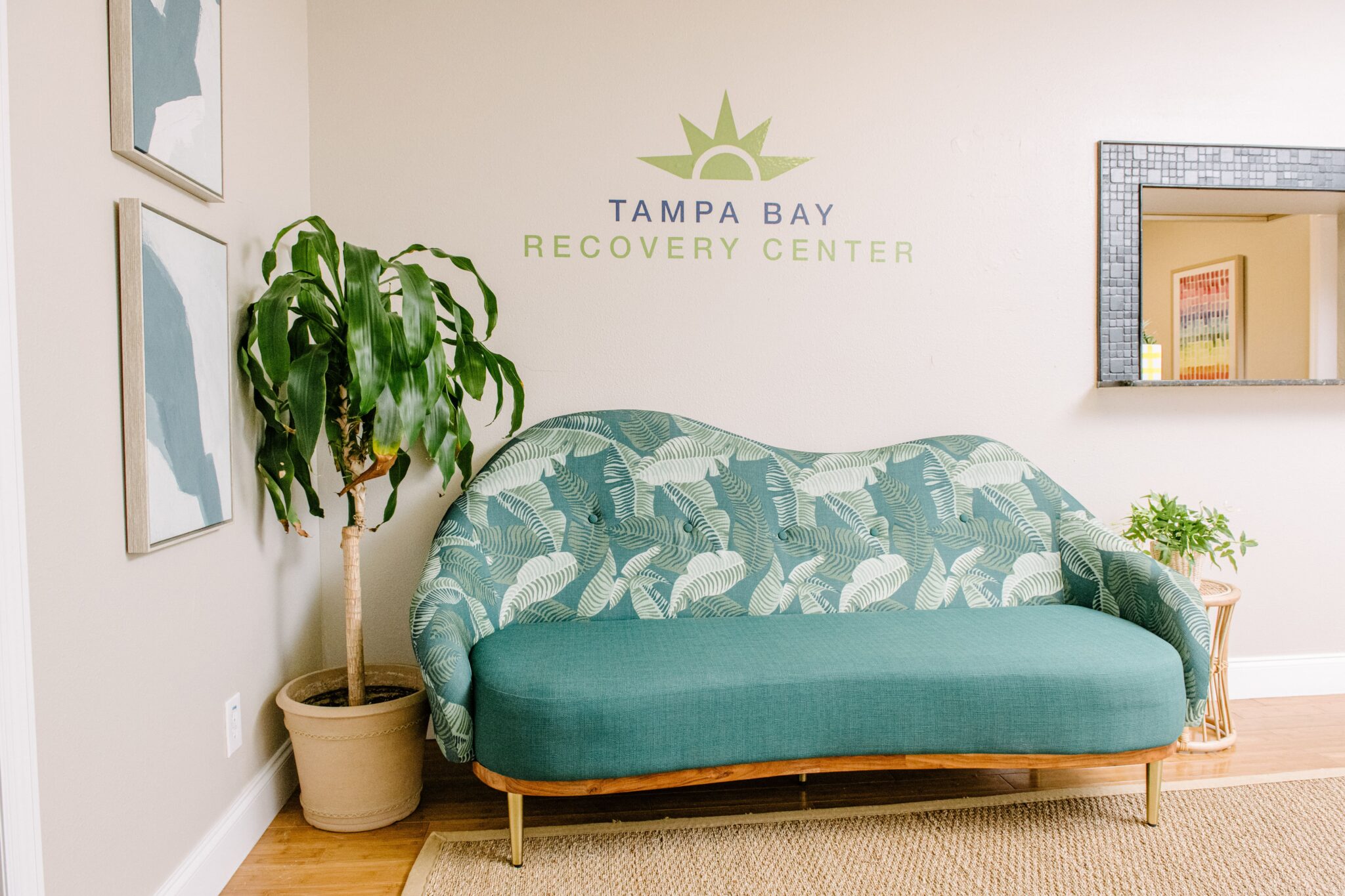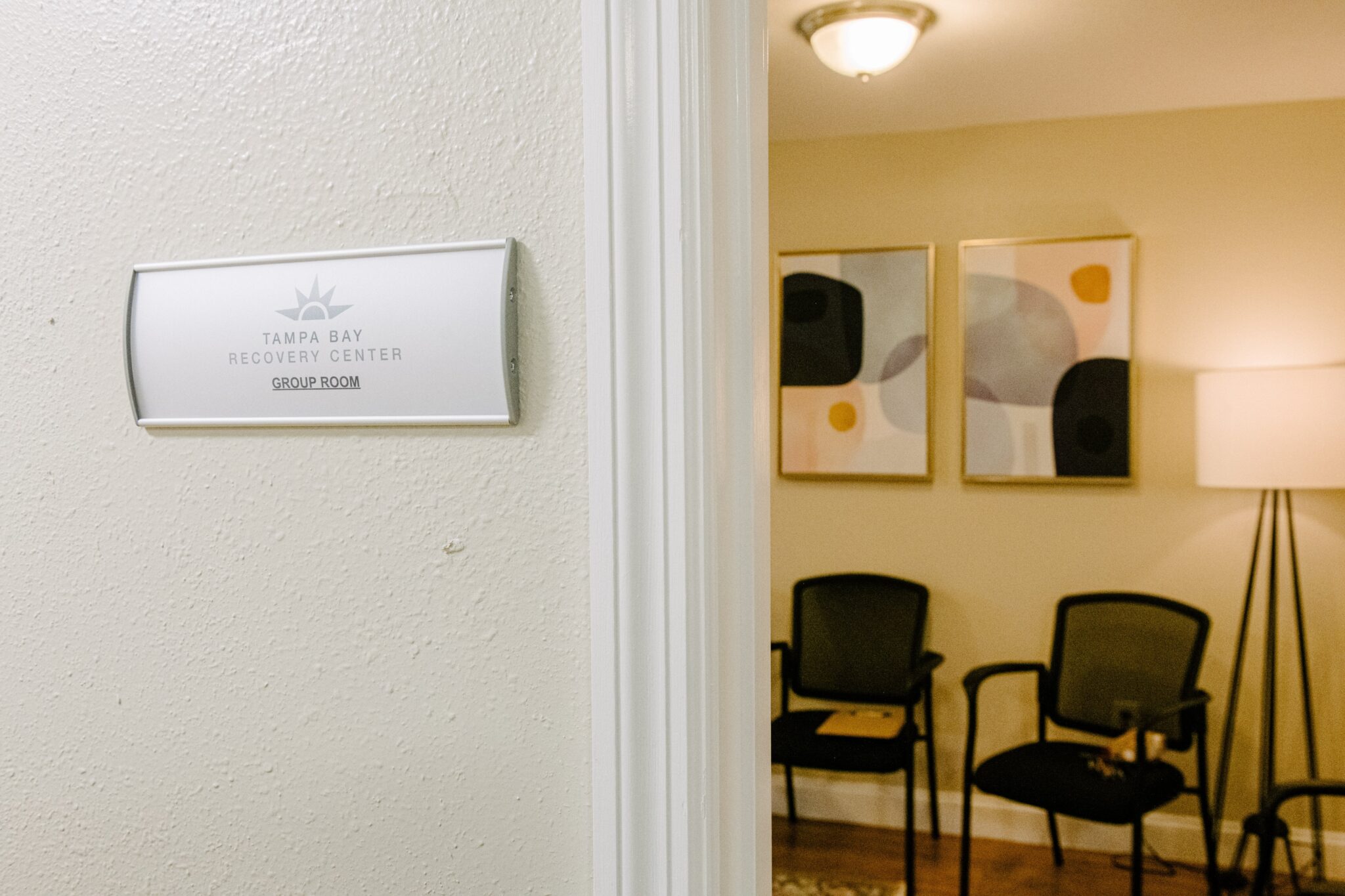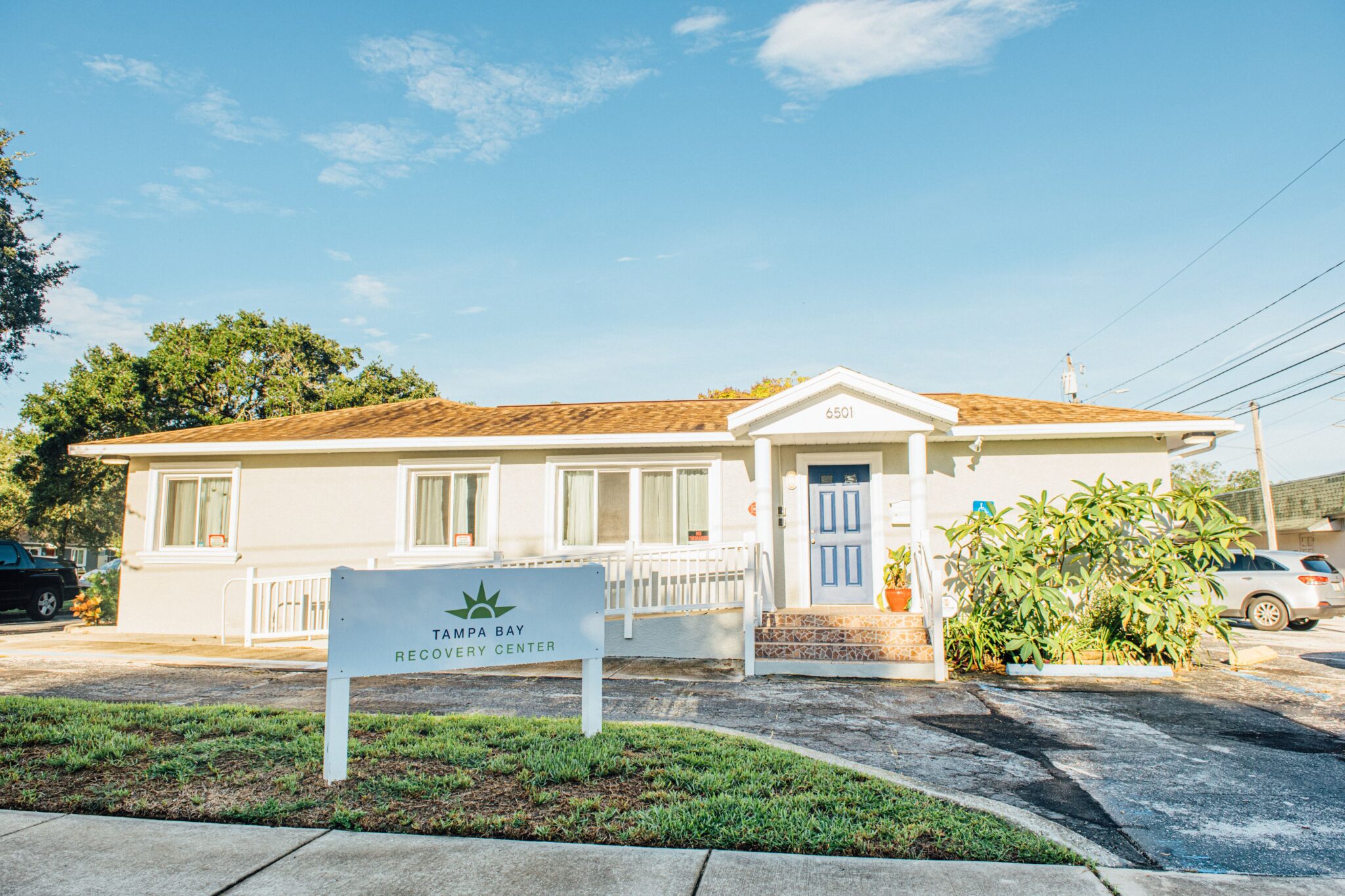Home Drug Rehab in Tampa Opioid Rehab, Withdrawal + Addiction Treatment

Opioid Rehab, Withdrawal + Addiction Treatment
Opioid addiction is a widespread and dangerous issue that can quickly escalate from casual use to a full-blown disorder. At Tampa Bay Recovery, our opioid rehab program provides effective treatment to help people break free from opioid addiction, navigate withdrawal symptoms, and achieve lasting sobriety. We understand the devastating impact opioid addiction can have on individuals and their families, and our team is here to help you reclaim your health and well-being.
What Are Opioids?
Opioids are drugs derived from the opium poppy plant and are classified as Schedule II substances, meaning they have a high potential for abuse. These drugs bind to receptors in the brain to block pain and increase dopamine levels, which creates feelings of pleasure and relaxation. Unfortunately, prolonged use or misuse can lead to both physical and psychological dependence, and opioid addiction (opioid use disorder, or OUD) affects around 3 million people in the U.S.
While opioids are often prescribed to manage pain, they can become addictive, even for those who use them as directed. In some cases, individuals may obtain opioids illegally or through friends and family, which can further increase the risk of addiction. Whether the addiction develops from a prescription or illegal use, individuals often need professional help from an opioid detox center to recover.
Common Opioid Drugs
Opioids come in many forms, both legal and illegal. Common opioid drugs include:
- Vicodin
- OxyContin
- Percocet
- Dilaudid
- Demerol
- Codeine
- Tramadol
- Morphine
- Heroin
- Fentanyl
Each of these drugs poses a significant risk of addiction and overdose. If you or a loved one is struggling with opioid use, seeking professional treatment is crucial.
Signs and Symptoms of Opioid Addiction
Opioid addiction manifests in both physical and behavioral symptoms. Common signs include:
- Excessive sleeping or lethargy
- Flu-like symptoms
- Weight loss and loss of appetite
- Poor hygiene and decreased sex drive
- Increased drug tolerance, leading to higher doses
- Failed attempts to quit
- Behavioral changes such as isolation, neglect of responsibilities, and financial issues
Recognizing these symptoms is the first step toward seeking treatment at an opioid rehab center like Tampa Bay Recovery.
Opioid Withdrawal Symptoms
When someone stops using opioids, withdrawal symptoms typically set in within 6 to 24 hours after the last dose. Symptoms can vary in intensity but commonly include:
- Nausea, vomiting, and diarrhea
- Headaches, sweating, and shakiness
- Increased heart rate and blood pressure
- Body aches, lethargy, and insomnia
- Seizures and hallucinations in severe cases
- Strong cravings for opioids
- Mood swings, anxiety, and depression
Withdrawal symptoms are typically most intense during days 2 to 4, with improvement starting around day 5. However, everyone’s experience is different, and some may require longer to fully detox.
Medications Used to Treat Withdrawal Symptoms During Opioid Detox
At Tampa Bay Recovery, we offer medication-assisted treatment (MAT) to ease the withdrawal process. MAT combines counseling with FDA-approved medications to help reduce cravings and withdrawal symptoms. Common medications used during opioid detox include:
- Methadone: Reduces cravings and prevents withdrawal without causing a high, making it useful for long-term heroin withdrawal.
- Buprenorphine: Reduces cravings and withdrawal symptoms by mimicking the effects of opioids without producing euphoria.
- Naltrexone: Blocks the brain’s opioid receptors, preventing the user from experiencing a high if they relapse.
MAT helps many individuals successfully complete detox and move on to the next phase of recovery.
What Happens After Opioid Detox?
Detox is just the first step in overcoming opioid addiction. After detox, individuals can transition into one of several levels of care, depending on their needs:
- Residential treatment: Provides 24/7 care in a structured, supportive environment.
- Partial Hospitalization Program (PHP): Offers intensive therapy during the day, allowing individuals to return home at night.
- Intensive Outpatient Program (IOP): A step down from PHP, IOP allows individuals to continue working or attending school while receiving treatment.
- Virtual IOP: A remote option for those unable to attend in person.
- Outpatient treatment: Offers flexible therapy schedules for ongoing support.
Does Opioid Addiction Cause Mental Illness?
Opioid addiction and mental illness are often interconnected. About 50% of people with substance use disorders also experience a co-occurring mental health disorder. This is known as dual diagnosis, where both conditions feed into each other. For example, someone struggling with anxiety or depression may turn to opioids to self-medicate, unknowingly creating an addiction. Similarly, opioid addiction can worsen or trigger mental health symptoms.
At Tampa Bay Recovery, we specialize in treating dual diagnoses, addressing both substance use and mental health disorders simultaneously. This comprehensive approach ensures that individuals receive the support they need to heal both mind and body.
Find Help with Drug Rehab in Tampa Bay
Opioid addiction is a serious condition, but recovery is possible with the right support. At Tampa Bay Recovery, we provide world-class opioid rehab services that include detox, residential treatment, outpatient care, and a variety of therapies tailored to each individual’s needs. Our skilled clinicians are experienced in helping people overcome opioid addiction and maintain long-term sobriety.
If you or a loved one is ready to break free from opioid addiction, visit our admissions page or call us today at (813) 733-8774. Take the first step toward a healthier, brighter future. You don’t have to face this journey alone—we’re here to help.
At Tampa Bay Recovery, our evidence-based, compassionate care empowers individuals to overcome opioid addiction. Whether you need detox, residential care, or outpatient services, we’re here to guide you on your path to recovery.
Take Back Control:
Contact Us Now
Addiction and mental health disorder effects the lives of millions of Americans each year. Contact Creekside Recovery Group today to get the help you deserve.
TOUR
Tour Our Outpatient Detox Facility
Call 813-733-8774
Insurance Can Cover Up to 100% of costs
We Accept Most Insurance. Please Note We Are Not Affiliated With Or Endorsed By Insurance Companies.
CONTACT US
We Are Always Here For You
Our compassionate team is ready to assist you—contact us now for confidential support tailored to your needs!











